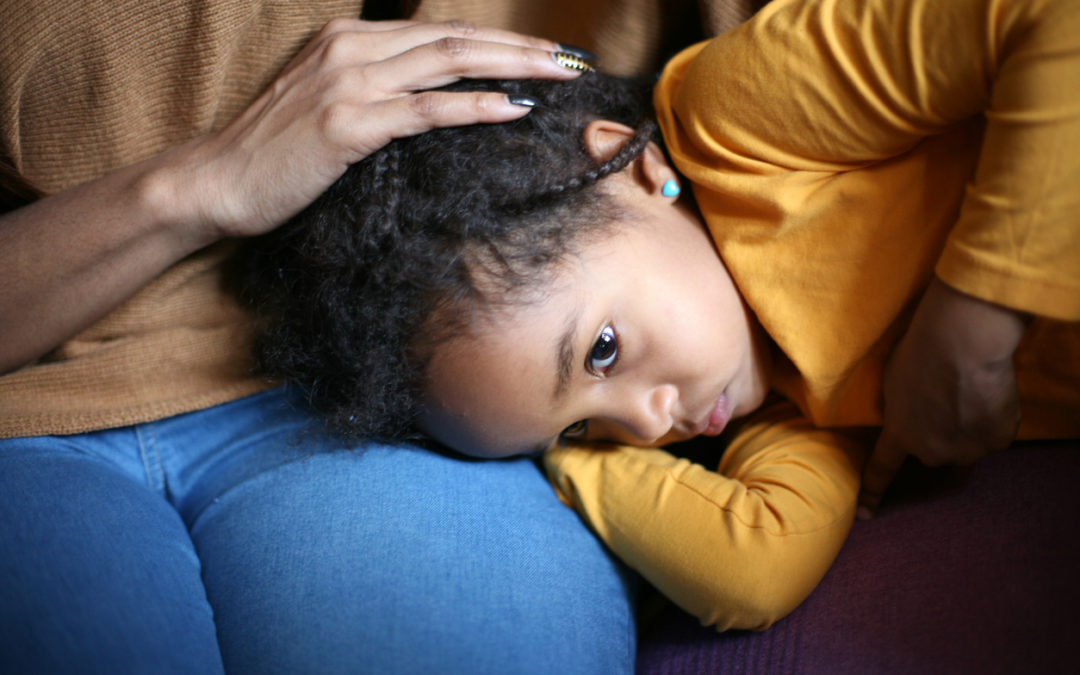This post “7 Things Highly Sensitive Children Need to Know to Thrive” was republished with permission from www.introvertdear.com. You can find the original post here: “7 things Your Highly Sensitive Child Needs to Hear”.
There are certain things highly sensitive children need to know to flourish. Highly sensitive children have a special set of gifts. Unfortunately, many people see those gifts as weaknesses. But whether you’re a parent, teacher, or another supportive adult, you can show support and acceptance to highly sensitive children with a few simple words.
As an adult who was once a highly sensitive child, I remember my eyes burning under the fluorescent lights in school. I wore leggings until I was a teen because the constricting feeling of jeans filled me with panic. I still complain about seams in my underwear and even made up a silly song about it.
I know what it’s like to feel profound empathy toward my family and emotional overwhelm about global injustices. And as I sit here writing, I’m processing so much in this active mind of mine that it’s hard to write coherent thoughts.
I used to feel there was something wrong with me. Now I know that what I described is related to the gift of high sensitivity — even if it doesn’t always feel that way.
It took me until my 30s to embrace my sensitivity as a strength and share my voice. Today, I lead retreats for highly sensitive people and introverts in order to build a sense of belonging among those of us who feel like outsiders due to our traits. Many attendees tell me they leave these retreats with a renewed sense of who they are and acceptance they’ve never felt before.
I believe we can encourage our children to love their sensitivity from a much earlier age. Some of these sentiments I share were words I heard. Others are words I wish I had heard. Either way, they’re things highly sensitive children need to hear.
7 Things Highly Sensitive Children Need to Know to Thrive
1. “All of your emotions are acceptable.”
At some point in our lives, most of us have been told not to cry. While tears are gaining an iota of societal respect, emotions such as anger, anxiety, and hurt continue to be judged as “unhealthy”.
Highly sensitive children are wired to fully experience the entire spectrum of human emotion. When we give highly sensitive children permission to experience their emotions without being told they’re bad or negative, they benefit in a powerful way. Then, we can teach them the tools to transform an emotion such as anger into creative or passionate fuel to do something constructive.
2. “It’s healthy to experience emotion about injustice.”
As a young child, I got extremely emotional about issues ranging from racism to bullying. As I got a little older, political conversations about injustice easily landed me in tears.
One of the things highly sensitive children need to hear is that it’s okay to feel emotional when they see others experiencing pain. This is a compassionate response, not an overreaction. Rather than dismissing their experiences, we need to acknowledge the hurt. When the time is right, offer ways your child can take meaningful action, such as starting a fundraiser or speaking up about an issue.
3. “Let others know when you need alone time.”
Highly sensitive adults aren’t the only ones who need alone time. I recently saw a video of a little girl stating that she “just wants to chill in nature away from people.” She certainly seemed like a sensitive introvert to me.
Highly sensitive children will probably need alone time after stimulating activities like attending school or parties. Let’s teach them to ask for alone time constructively so it doesn’t come in the form of a meltdown later.
4. “Listen to your body.”
Highly sensitive people are often sense subtle responses to stimuli. Unfortunately, our conditioning moves us away from listening to what our bodies tell us, and we may lose this connection as we get older.
We can teach highly sensitive children to notice how their body feels, for example, when they eat a certain food or hang out with a certain friend. Likewise, we can also teach them to find a place in their body that feels calm (even if a finger or toe). This is a powerful grounding skill highly sensitive children can use when they feel anxious and need to regulate their bodies’ responses.
5. “It’s okay to say no.”
Children are accustomed to hearing the word “no,” but they usually don’t get permission to use it themselves. Obviously, it’s up to parents to set their own boundaries for when “no” is acceptable. But consider asking if your child wants to go to Henry’s birthday party before simply sending the RSVP. Certainly, “no” is a delicate balancing act with children, but if encouraged mindfully, it can be an important step in learning healthy boundaries.
6. “Take your time to process.”
Just like adult HSPs, highly sensitive children may require extra time to process information. According to Dr. Elaine Aron, one of the four characteristics of HSPs is “depth of processing.” This means that when sensitive children receive information, they take in everything they can, analyzing and connecting data to a larger picture.
Depth of processing can make life rich and meaningful, but it also slows us down. Simply being patient and allowing your child extra time to process honors this special gift.
7. “The world needs people like you.”
This just may be one of the things highly sensitive children need to know most. Our world needs more listening and compassion. Highly sensitive children can also be extremely analytical and creative problem solvers. Let’s remind the highly sensitive children in our lives that even though the world feels challenging at times, their sensitivity is a gift that can help others in countless ways.







